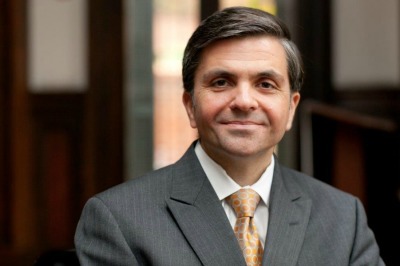Memorial Day & Democracy of the Dead

G.K. Chesterton has this famous quote about the importance of upholding the sagacity of the past:
"Tradition means giving votes to the most obscure of all classes, our ancestors. It is the democracy of the dead. Tradition refuses to submit to the small and arrogant oligarchy of those who merely happen to be walking about."
Memorial Day is primarily about honoring the legacy of the dead, especially persons who served sacrificially in the military. But ideally it also provokes remembrance and appreciation for the accumulated wisdom and experience of generations gone before. Assuming that we in our own time stand at the pyramid's peak of enlightenment, which is currently widespread and popular, is arrogant and foolish. Future generations will reflect on us and our generational errors with as much condescension and contempt as we often do of our ancestors.
The Church, as the eternal community of all saints past, present, and future, is model and corrective to hubristic presentism and progressivism. None, individually or generationally, stand alone, but are interrelated with countless others, equally the beneficiary of inherited sin and virtue. Christian orthodoxy offers a continuity of learning, accountability and community through its multigenerational universality, guarding against the presumptuousness of privatized heterodoxy claiming supposedly profound new insights, which typically are neither new nor wise. The Holy Spirit guides this miraculous continuity that enables otherwise entirely dissimilar persons of different times and cultures to relate together profitably in common faith.
In culture and mores outside the Church, there's no divine promise of constant direction. But there is a hopeful form of understanding genuine progress, which is providential, and driving towards a final plan for human destiny. Secular progressivism deifies History and sanctifies the latest fads, often tyrannically, and nearly always arrogantly. Demands to "get on the right side of history" are typically coercive and wrongheaded. This "right side" actually belongs to the Lord of history, not today's fashion.
Learning from the past without captivity to it is the constant challenge. Thomas Jefferson was not an orthodox Christian but he believed in Providence. He warned against a "bigoted veneration for the supposed superlative wisdom of [our] fathers and the preposterous idea that [we] are to look backward for better things and not forward, longing, as it should seem, to return to the days of eating acorns and roots rather than indulge in the degeneracies of civilization."
Yes, we can be grateful that most of us no longer subsist on acorns and roots, living better than even wise and wealthy ancestors of many centuries could have imagined. But our comforts today are due to their sacrifices and diligence, often guided by moral and spiritual wisdom that is at its core constant and unchanging. We should profit from the example of the dead without worshipping them, as many cultures have and do, ensuring their own ongoing captivity.
Memorial Day should summon the wisdom of both Chesterton and Jefferson, modestly appreciating our own providential place in history and its relation to our ancestors, who were not by nature much different from ourselves but can teach us much.





















